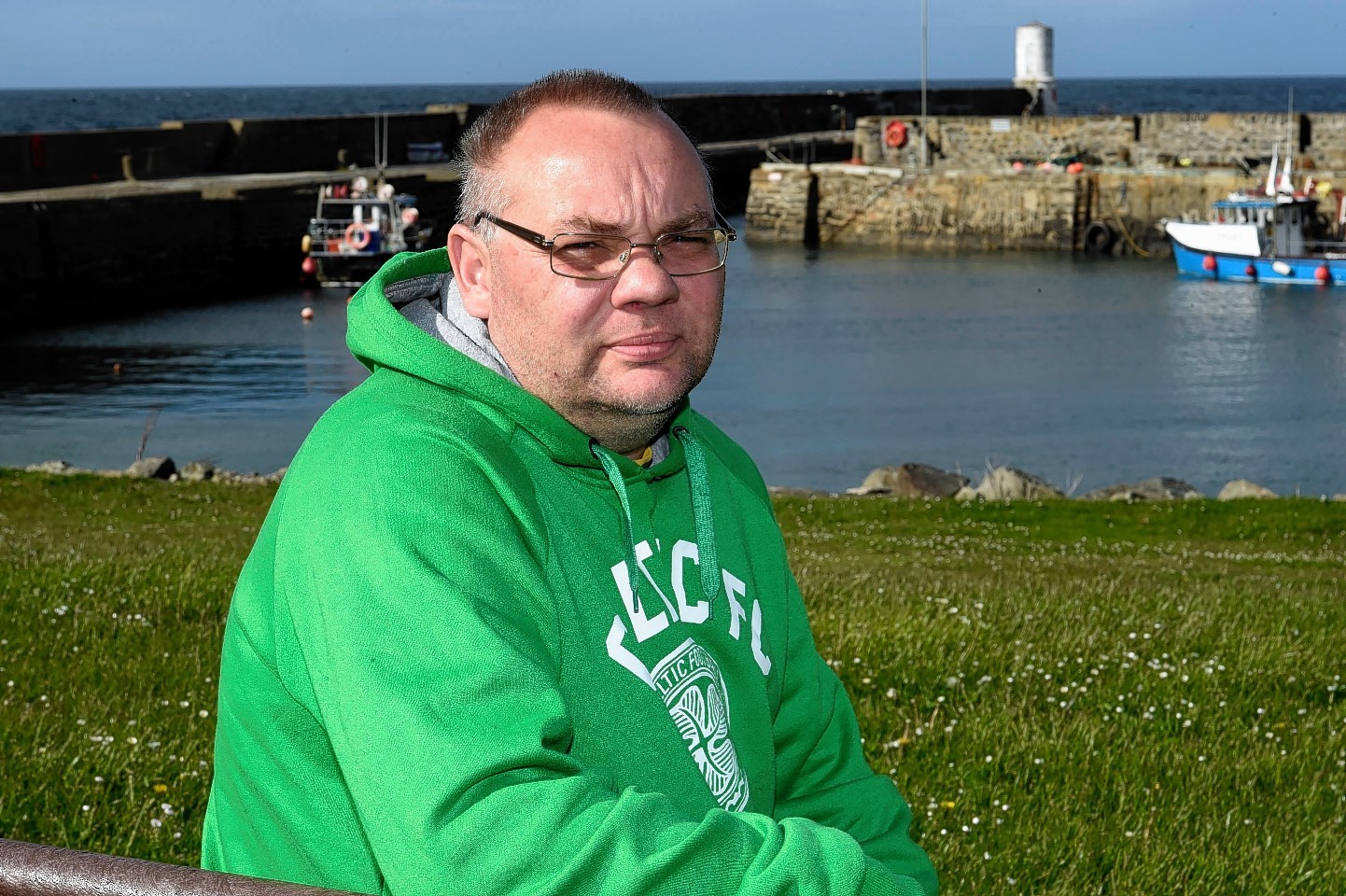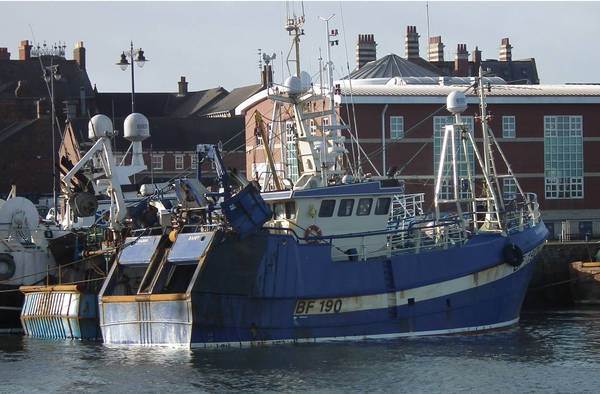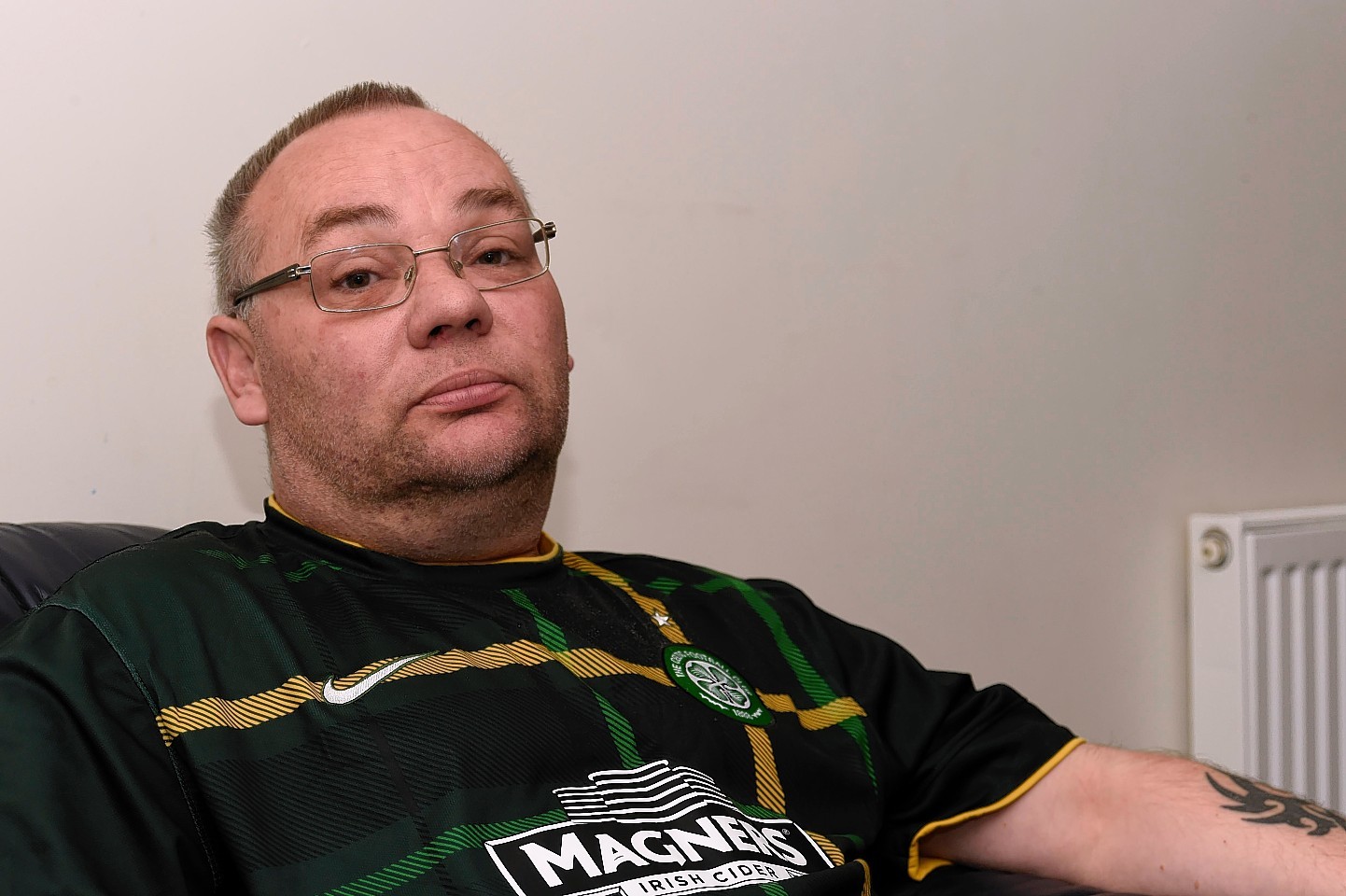A relieved skipper has spoken for the first time about the moment he and his crew stared death in the face as their trawler sunk in the ice-cold waters of the Atlantic.
Alan Bolt and his four companions were plunged into the open sea as the Banff-registered Kairos went down off the coast of the Scilly Isles.
The men had to swim through churning waves in pitch darkness before clambering on board their life raft to await rescue.
Last night Mr Bolt admitted he feared he would never make it home to his wife and children.
“I thought ‘this is it’,” he said.
“It was the worst experience of my life.
“Somebody was looking out for us, that’s for sure.”
The father-of-two spoke exclusively to the Press and Journal about the final hours of the Banff-registered Kairos.
The 46-year-old from Rosehearty said he was suffering nightmares about the disaster and did not know if he would be able to return to sea.
“I’m still traumatised by it,” he said.
I’m getting a broken sleep and I’m reliving it often. I’ve got two young kids – a six-year-old and a nine-year-old – and they don’t want to go through losing their dad or read about it happening.
“We might not be so lucky the next time.”
Trouble started for the crew of the boat, which used to fish out of Fraserburgh, when they lost a net last Monday afternoon.
They were in the process of retrieving it at around 7.30pm when massive swells began to batter the vessel.
Efforts to pump out the water that had come on board failed and the skipper realised he and his companions were in serious trouble.
Mr Bolt said: “We noticed that there was water in the cabin – three or four foot of it.
“We were having problems. The boat wasn’t pumping out as quick as I would have liked, and there was a lot of sea coming into the back of us. It just wasn’t going away.
“The weather was just getting poorer and poorer all the time, and there was more water coming in. That’s when I took the decision that we weren’t going to manage to save the boat.”
The crew immediately sent out a mayday with their location and braced for the inevitable – that they would have to evacuate the vessel.
Seconds later, they were forced into the Atlantic when the engine died and the boat disappeared beneath the waves.
The men were left floating in the open sea, yards away from their life raft in 20ft swells.
“Everybody was shouting to make sure everyone else was okay, and we all made our way to the general direction of the life raft,” Mr Bolt added.
“‘This is it’, I thought. I thought it a number of times. I have been to sea almost all my life and I’ve never experienced anything anywhere near it.
“The worst of it was, once we were in the raft, we didn’t know how long it would be before anyone would come. We knew we wouldn’t last too long.”
Mr Bolt and the four Filipino crew were eventually rescued by the Dingle-based trawler Cu Na Mara following a huge search of the boat’s last known location led by the Irish coastguard.
“I was struggling by then,” said the skipper, who has diabetes.
“I couldn’t climb, I didn’t have the strength. I ended up in the water again and drifted around to the other side of their boat. One of their crew had to put on a survival suit and jump in for me.
“They were lifesavers. Every one of them. It could have been so much worse. Most of the time I was thinking I was going to die.
“It was the worst experience of my life. All I can say is that the five of us owe the Cu Na Mara our lives.”
The Department of Transport’s Marine Accident Investigation Branch has launched an inquiry into the sinking of the trawler.
Mr Bolt’s wife, Michelle, described hearing about the sinking as her “worst nightmare”.
She added: “He has been at sea for as long as I have known him and I’ve never expected to get a phone call like I did.
“I’m very, very thankful that he’s still here and I’m very thankful to the guys who picked him up.”


